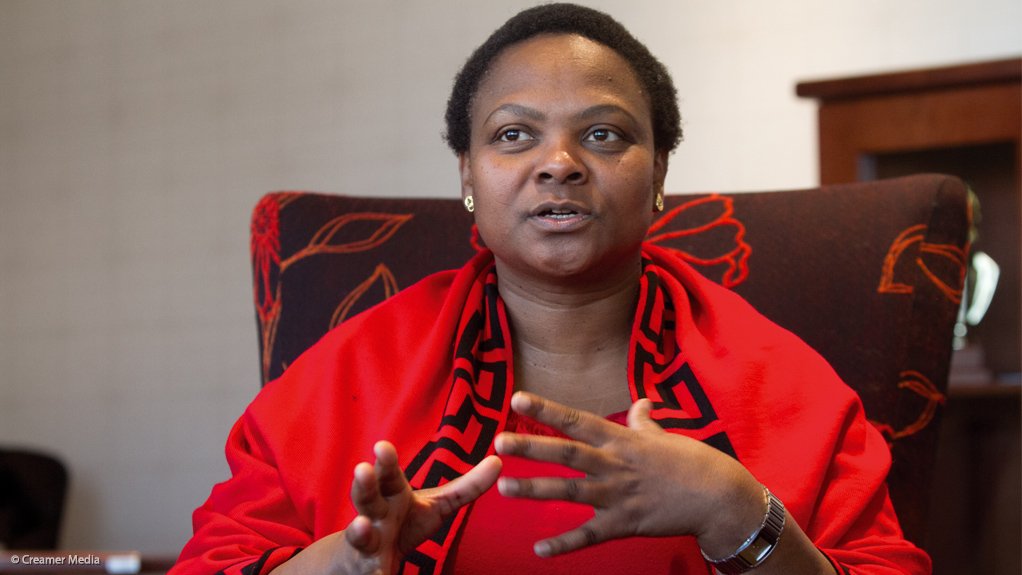Department of Energy (DoE) director-general Nelisiwe Magubane has reaffirmed the South African government’s commitment to nuclear power as part of the country’s future energy mix. She was addressing the 2013 conference of the Nuclear Industry Association of South Africa in Port Elizabeth on Wednesday.
“I need to remind everyone present here today that the government of South Africa has long made a decision to implement the Integrated Resource Plan (IRP) 2010-2030, and is committed to nuclear power as stipulated in the IRP,” she stated. “As a government official, let me reiterate again, in March 2011, the executive, that is Cabinet, decided that 9 600 MW of energy in this country will be developed using nuclear energy.”
Although the IRP 2010-2030 is being reviewed, this is unlikely to eliminate nuclear energy from the mix. “Preliminary results indicate that if we intend to reduce our carbon footprint and also have a vibrant economic growth, nuclear energy will be part of the solution,” she pointed out. The DoE has received Cabinet approval to publish its Integrated Energy Plan.
Magubane also noted that the National Nuclear Energy Executive Coordinating Committee had recently been uprated and streamlined. It was now headed by President Jacob Zuma instead of by the Deputy President and included six Cabinet Ministers in place of the previous 12. This restructuring was designed to increase efficiency and decrease decision-making time. “I would like to inform everyone that there’s a lot of work happening in the background towards the roll-out of the nuclear programme.”
“To demonstrate our commitment to developing nuclear energy, since your [Niasa’s] last conference, we have completed the IAEA [International Atomic Energy Agency] Integrated Nuclear Infrastructure Review,” she highlighted. “This was done for South Africa to honestly evaluate our infrastructure before we could say ‘South Africa is ready’ for nuclear expansion. We took the decision mindful of the fact that the last nuclear build was done in [the] Koeberg nuclear power station more than 25 years ago and therefore we needed to be able to confidently say we are ready and work on those issues that are still outstanding. As you probably know, we are the first country amongst nuclear operating countries to conduct this evaluation, and I am told others will follow suit shortly.”
She affirmed that South Africa’s probable shale gas reserves were not an alternative to, but rather a complement for, nuclear energy. “One can play a major role in electricity provision whereas the other provides us with a portable source of energy that can be used more efficiently directly. We are working on policies to ensure efficient use of all our energy sources. This is why we prefer to talk of a balanced energy mix.”
EMAIL THIS ARTICLE SAVE THIS ARTICLE
To subscribe email subscriptions@creamermedia.co.za or click here
To advertise email advertising@creamermedia.co.za or click here











